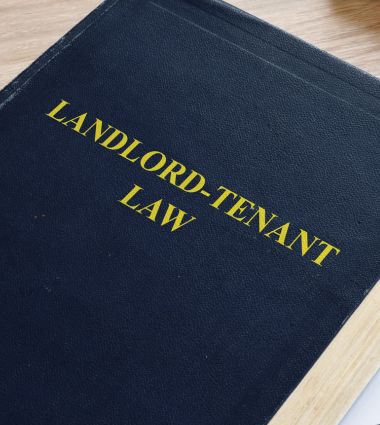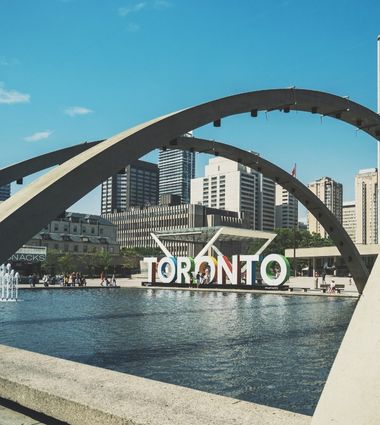General FAQs About Real Estate Law in Ontario
Buying or selling a home in Ontario can be exciting, but it can also feel like going through a maze of legal rules and regulations.
That’s where we come in!
In this blog, we’ll break down some of the general frequently asked questions about real estate law in Ontario, so you can feel confident and informed every step of the way. Our clear, simple explanations are designed for everyone, whether you're a first-time homebuyer, a seasoned seller, or just curious about how it all works.
Let's make real estate law easy to understand — and maybe even a little bit fun!
What is Real Estate Law in Ontario?
Real estate law in Ontario covers the rules and regulations governing property transactions in the province. It's a complex field that touches on everything from buying and selling homes to leasing commercial spaces.
When you're dealing with real estate law Ontario, you're navigating a maze of legal requirements. These laws protect both buyers and sellers, ensuring fair deals and clear property ownership.
Think of it as the rulebook for the biggest purchase most of us will ever make. It covers things like property rights, land use, and even how disputes between neighbours are settled.
It's important to understand the basics of real estate law before buying a home or investing in real estate. It will save you time and headaches in the future. It's not just about signing on the dotted line – it's about knowing what you're signing up for.

Common Real Estate Transactions and Documents
When you're buying or selling property in Ontario, you'll encounter a variety of legal documents. The most important one is the Agreement of Purchase and Sale. It's the backbone of any real estate deal in the province.
The Ontario Real Estate Association (OREA) has created standardized forms that all real estate agents use. These forms help streamline the process and ensure everyone's on the same page.
For residential transactions, you'll likely come across the Transfer/deed of land. This document officially transfers ownership from the seller to you, the buyer. It's an important piece of paperwork in real estate law Ontario.
While these documents are common, each transaction is different. It's always a good idea to consult with a lawyer who specializes in real estate law to guide
What Does a Real Estate Lawyer Do?
Have you ever wondered what an Ontario real estate lawyer does? When it comes to property concerns, these legal specialists are the ones you should consult. They are the ones who draft the important legal documents needed for deals like mortgages and leases.
Still, that's not all!
Your real estate lawyer can be a great resource when it comes to locating the ideal home. They'll guide you through the intricacies of proposals and discussions to ensure you're receiving a reasonable offer. They act as your second pair of eyes when it comes to contracts, going over every detail and carrying out extensive due diligence.
Think of them as your property guardian angels, spotting potential legal issues before they become headaches. From boundary disputes to title problems, and answerung most common FAQs about real estate law --- they've got your back in the complex world of real estate law.
Do the Buyer and Seller Need Separate Lawyers?
In Ontario, real estate law generally requires buyers and sellers to have their own legal representation. This might seem like overkill, but it's actually a smart move. Here's why:
The Law Society of Ontario typically doesn't allow one lawyer to represent both sides in residential property deals. It's all about avoiding conflicts of interest. Think of it like a referee in a hockey game - you wouldn't want the same person calling shots for both teams, right?
There are a few exceptions, though. Sometimes, two lawyers from the same firm can represent the buyer and seller. But this is pretty rare.
The bottom line is that in most cases, you'll need your own lawyer when buying or selling property in Ontario. It's just part of the game in real estate law.
When Should You Hire a Lawyer for a Real Estate Transaction?
Buying or selling property in Ontario can be tricky. Even though you might think you can handle it alone, there are times when you'll want a real estate law expert in your corner.
If you're a first-time home buyer, the process can be overwhelming. A lawyer can guide you through the paperwork jungle and explain those confusing legal terms. They'll make sure you're not signing away your firstborn without realizing it!
For commercial property deals, definitely get a lawyer involved. These transactions are often more complex than residential ones, with more potential pitfalls.
Chatting with an Ontario Real Estate Lawyer before you sign on the dotted line is always smart. They can spot issues you might miss and save you from problems down the road.
Remember, in real estate law, an ounce of prevention is worth a pound of cure!

What Questions Should I Ask an Ontario Real Estate Lawyer Before Hiring Them?
When you're looking for a real estate lawyer in Ontario, it's important to ask the right questions. You want someone who's not just experienced, but also a good fit for your specific needs.
Start by asking general FAQs about real estate law in Ontario and then about their experience with real estate law. How long have they been practising? What types of cases do they usually handle? A lawyer who's dealt with situations similar to yours will likely be better equipped to help you.
Don't be shy about discussing the details of your case. Ask how they'd approach your particular legal issues. Their answers can give you a sense of their expertise and problem-solving skills.
You're not just hiring a lawyer - you're choosing a partner for one of the biggest transactions of your life. Take your time and find someone you trust.
What Costs Are Associated with Real Estate Transactions?
Buying or selling property in Ontario isn't just about the price tag on the house. There are quite a few additional costs that can sneak up on you if you're not prepared. Let's break it down:
First off, you've got legal fees. A real estate lawyer is a must-have for navigating the complexities of real estate law in Ontario. They'll typically charge a flat fee or an hourly rate.
Then there's the land transfer tax. This is a biggie, especially in Toronto where you're hit with both provincial and municipal taxes. The amount varies based on the property's value.
Don't forget about home inspections, appraisals, and title insurance. These might seem optional, but they're really important safeguards.
Lastly, factor in moving costs and potential renovations. It all adds up!
What Happens if You Cannot Complete Your Purchase or Sale?
Real estate law in Ontario can be kind of a puzzler, especially when deals fall through. If you're unable to complete your purchase or sale, it's not the end of the world, but it can be stressful.
Here's what typically happens:
- The other party might sue for "specific performance," forcing you to complete the deal.
- You could face financial penalties, like losing your deposit.
- In some cases, you might need to cover the difference if the property sells for less later.
Ontario lawyers often recommend including conditions in your agreement to protect yourself. It's always best to chat with a professional who knows the ins and outs of real estate law before making any big decisions.
How to Find the Perfect Real Estate Lawyer in Ontario
Finding the right real estate lawyer in Ontario doesn't have to be a headache. Start by asking friends and family for recommendations - their personal experiences can be invaluable. Don't shy away from online reviews either, but take them with a grain of salt.
Once you've got a shortlist, reach out for initial consultations. Many lawyers offer these for free. It's your chance to gauge their expertise in real estate law and see if you click personality-wise.
Remember, cost isn't everything. A slightly pricier lawyer with loads of experience in Ontario real estate law might save you money (and stress) in the long run. Ask about their fee structure upfront to avoid surprises.
Lastly, trust your gut. You'll be working closely with this person, so choose someone you feel comfortable with.
This concludes our quick guide to some general FAQs about real estate law in Ontario. Buying or selling property can feel overwhelming, but knowing the basics helps smooth out the process.
Keep in mind, that laws can change, so it's always smart to check with a lawyer for the most up-to-date info. Whether you're a first-time homebuyer or a seasoned property investor, staying informed is key.
Take it one step at a time, ask questions, and don't be afraid to seek expert advice when needed. With the right knowledge and support, you'll be well-equipped to handle your next real estate adventure in Ontario.
Real Estate
Family Law
Wills & Estates
Immigration
Join Our Mailing List.
Sign up with your email to receive our newsletter and stay informed about the latest legal developments and special offers.



















































































